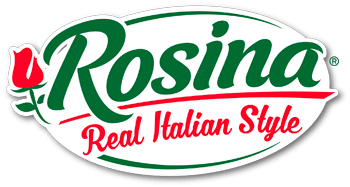Rosina Food Products Inc.
California Transparency in Supply Chains Act Disclosure Statement
Rosina Food Products Inc. (“Rosina”) has programs to effectively manage the risks of slavery and trafficking throughout our supply chain.
Our supplier certification agreement letter addresses business practices of our third-party business partners, suppliers, distributors, consultants, joint ventures, licensees, and other business partners (“Business Partners”). That communication contains specific provisions addressing human rights, labor, and business conduct, including verification of our product supply chain to evaluate and address risks of human trafficking and slavery.
To that end, we regularly ask our Business Partners to self-certify their compliance with the principles in our certification communication. Suppliers are expected to designate management staff to monitor their factories, production facilities and compliance with our certification communication. Our supply agreements also contain representations that our business partners are in compliance with all applicable federal, state and/or provincial, regional, municipal, and local laws, codes, regulations, rules, ordinances, decrees, permits, registrations and orders, which would include laws addressing human trafficking and slavery. In addition, Rosina may conduct semi-announced visits and/or have third-parties monitor visits to ensure compliance with the certification, including compliance with prohibition on slavery and human trafficking. Rosina also requires in the agreement that business partners certify that materials incorporated into Rosina’s products comply with the laws regarding slavery and human trafficking of the country or countries in which they are doing business.
We ask that all Rosina associates, suppliers, and contractors communicate directly to our Human Resources Department any signs of slavery and trafficking. Rosina employees who do not act promptly to report noncompliance matters may be subject to disciplinary action.
We provide all non-production employees communication regarding compliance with the Rosina Associate Handbook, which also includes abiding by all global, national, and state laws where we do business. We have ongoing communication to our product supply leadership, internal team members with direct responsibility for supply chain management, and continue communicating these policies to our Business Partners to identify and address risks of slavery and trafficking in our supply chain.
Finally, as part of our overall sourcing program, we evaluate (and may use third parties to evaluate) our supply chains for risk, including human rights and labor risks such as trafficking and slavery. We support our certification agreement with site visits, self-assessments and third-party audits. We support mutual recognition platforms for audits to encourage our business partners to focus on remediation and improvements rather than re-audit by multiple customers. In the event concerns arise, we will investigate the matter and take appropriate actions to mitigate the risk by either terminating the relationship or remediating to ensure our business partner is in compliance with our certification agreement.
